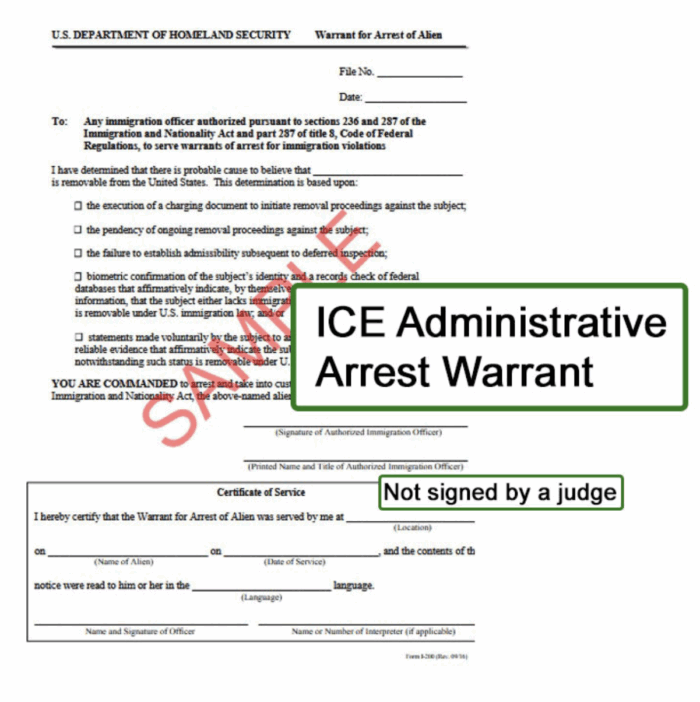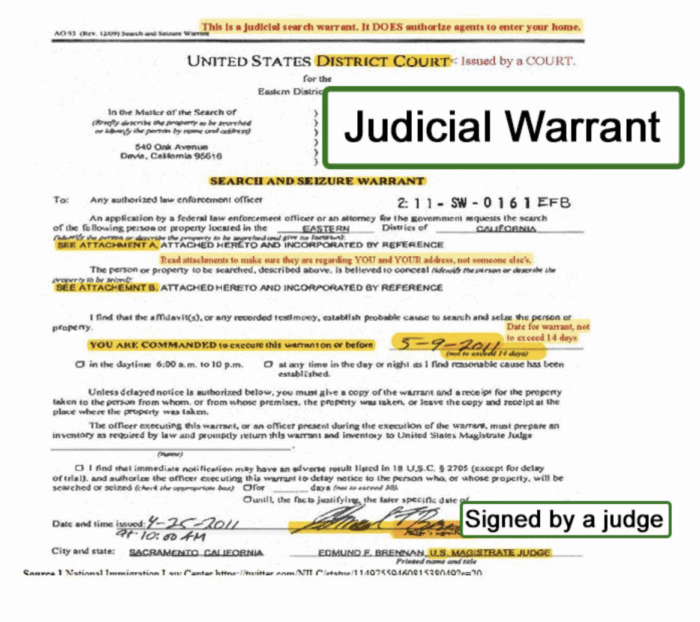President Donald Trump deployed approximately 2,000 National Guard troops to D.C. and took control of the Metropolitan Police Department (MPD) in early August, after declaring an emergency based on inaccurate representations of violent crime.
Federal officers stopping or arresting residents can be alarming. However, students and D.C. residents are entitled to rights when interacting with law enforcement and federal agents, including MPD, Immigration and Customs Enforcement (ICE), Drug Enforcement Administration (DEA), FBI, and the National Guard.
Scout Cardillo (CAS ’27), a student organizer with Free DC, acknowledged that ongoing changes in federal actions cause uncertainty over safety but that students can take steps to prepare themselves.
“There’s a lot that we don’t know, which is why it is so important for students to not only know their rights but to also educate fellow students so that they know their rights in this context,” Cardillo said.
The Voice assembled a list of the rights and resources for students to prepare for a potential encounter with federal agents compiled from Free DC, the American Civil Liberties Union, and the National Immigrant Justice Center, all of which are available online.
Right to remain silent
If law enforcement stops you for questioning, you have the right to remain silent and do not have to answer questions. You can respond with “I wish to exercise my right to remain silent” and cannot be punished for doing so.
If you are not a U.S. citizen, you are required to show your ID or immigration documents to immigration agents when requested.
MPD officers can only require you to give identification if they stop you while driving. In D.C., you must provide your legal name and address if officers ask, even if you choose to remain otherwise silent.
Right to a lawyer
You have the right to legal representation if you are arrested; you can request a lawyer immediately. Once you verbally state that you are exercising that right, you do not have to answer any questions until you speak with a lawyer.
If outside law enforcement come to campus seeking access to records, students or employees, residence halls, or other university facilities, you can contact Georgetown’s Office of the General Counsel, which represents the university.
Privacy: Home entry & searches
If federal agents attempt to enter your residence, you have the right to refuse entry and the right to legal representation. Federal agents can only enter your home if they have a court-issued judicial warrant, signed by a judge or if you provide verbal consent. If agents do enter your home, you still retain the right to remain silent.
Warrants that are not signed by a judge, such as an ICE administrative warrant, do not grant agents the authority to enter your home.
 Source: National Immigrant Justice Center
Source: National Immigrant Justice Center
 Source: National Immigrant Justice Center
Source: National Immigrant Justice Center
If an agent stops you in public for a physical search, they can only search you by patting down the outside of your clothing. Agents may not search inside your pockets or ask you to remove any items of clothing.
If an agent stops to search you, you can say “I do not consent to this search,” but they may legally be allowed to continue the search. Officers can pat down anyone they suspect of carrying a weapon. Physically cooperating with the frisk may help protect your safety and prevent a charge for resisting an agent.
Leaving interactions with law enforcement
If an agent blocks your path, stops you, or begins asking you questions, you can politely ask, “Am I free to leave?”
If the agent says yes, calmly and politely leave. If the agent says no, you must stay where you are. You can ask why you are not free to leave—an officer can stop to detain you only if they suspect that you have, are about to, or are actively committing a crime.
You can also ask “Am I under arrest?” If they answer yes, you have the right to ask why or for what crime.
Be aware that ICE agents have permission to use “ruses”—lies about their identity or reason for the interaction—to collect information or gain access to private spaces.
Actions you can take as a bystander
If you witness interactions with law enforcement, you have the right to photograph or film the encounter in public spaces. If an interaction occurs on private property, the owners can permit you to continue documenting or may ask you to leave. Officers cannot view any information you collect digitally by searching or seizing your device without a warrant, and they cannot delete any of your data.
You are not allowed to interfere with or obstruct actions from law enforcement and they may order you to move a reasonable distance away from them. If officers ask you to move, it is often safest to comply, but you are still allowed to continue filming.
Bystanders can also help those stopped by law enforcement contact someone they trust.
“If you’re witnessing someone being detained, you’re able to ask the person for their name and if they have a phone number of a loved one that they would want to be notified,” Cardillo said.
On-Campus Resources
- Undocumented Student Services: undocumented.georgetown.edu, or undocuhoyas@georgetown.edu
- International Student and Scholar Services: https://internationalservices.georgetown.edu/ (Office of Global Services)
- U.S. Immigration Policy & Regulatory Updates from Georgetown: https://internationalservices.georgetown.edu/immigration-updates/
- Georgetown University Office of General Counsel: https://counsel.georgetown.edu/, or generalcounsel@georgetown.edu
D.C.-Wide Resources
- Report an ICE Raid: Migrant Solidarity Mutual Aid ICE Emergency Hotline: (202) 335-1183
- Free DC ‘Know Your Rights’ Resources and Fact Sheet: https://freedcproject.org/rights
Editor’s note: This story has been updated to clarify the role of Georgetown’s Office of General Counsel.






